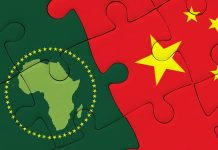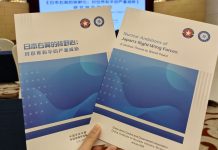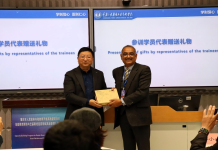Luanda: The first, second and third volumes of the book have already left a huge mark. The writings and speeches of the Chinese leader are fairly easy to understand, but underneath this simplicity is a complex web of thinking encompassing the dynamics of the laws of human development, historical contexts of the development process and theoretical basis to investigate the process.
The book answers questions about the miracle of China’s development and enumerates the enduring tradition in the governance of China, that is, keeping in mind the big picture without ever losing focus of the specific context. Since the 18th CPC National Congress in 2012, the rigor in the critical exploration and innovation has exponentially grown, bringing the benefits of scientific progress to governance.
Party competence
In Volume IV, President Xi gives insights into the competence of the CPC. To stay at the forefront of the times, a nation must always be guided by the right theories and thoughts. He asserts that “the capability of our Party and the strengths of socialism with Chinese characteristics are attributable to the fact that Marxism works.” He makes it clear that socialism has succeeded in China because Marxism is adapted by the CPC to the Chinese context.
He further elaborates that Marxism is the fundamental guiding ideology “upon which our Party and country are founded; it is the very soul of our Party and the banner under which it strives.” China has demonstrated that Marxism is not a set of rigid dogmas, but a guide to action that must evolve as the situation changes.
This important theoretical outlook expressed in fairly understandable terms constitutes the ideational framework for the governance of China. Under its guidance, the CPC exerts itself to the utmost to respond to challenges in various facets of the country’s modernization effort and even beyond. Seeking to connect thoughts generated through engagement with theories and developing practical solutions for issues of Party self-governance, state administration, people’s welfare, and international relations constitute the crux of the governance of China outlined in this volume.
The 658-page tome is a page-turner, ushering the reader into fresh frontiers of President Xi’s expansive thoughts on varying issues from a compilation of 109 of his speeches and written works spanning from February 3, 2020 to May 10, 2022.
The sustainability and inclusiveness of China’s development have confounded many Western experts and other pundits, compelling them and most of the Western political establishment to harden their ideological prejudice against the CPC as the leading force in the governance of China. The ideological prejudice and paranoia have ultimately led to political brinkmanship in some Western ruling circles, shaping the policy framework of confrontation and containment in relations with China.
–The Daily Mail-Beijing
Review news exchange item






